Vermont Rental Agreement

A Vermont rental agreement is a legal contract between a landlord overseeing a rental property and a tenant who wishes to use it. Vermont landlord-tenant law governs these agreements; rental terms must be within the limits allowed by law.
Vermont Rental Agreement Types
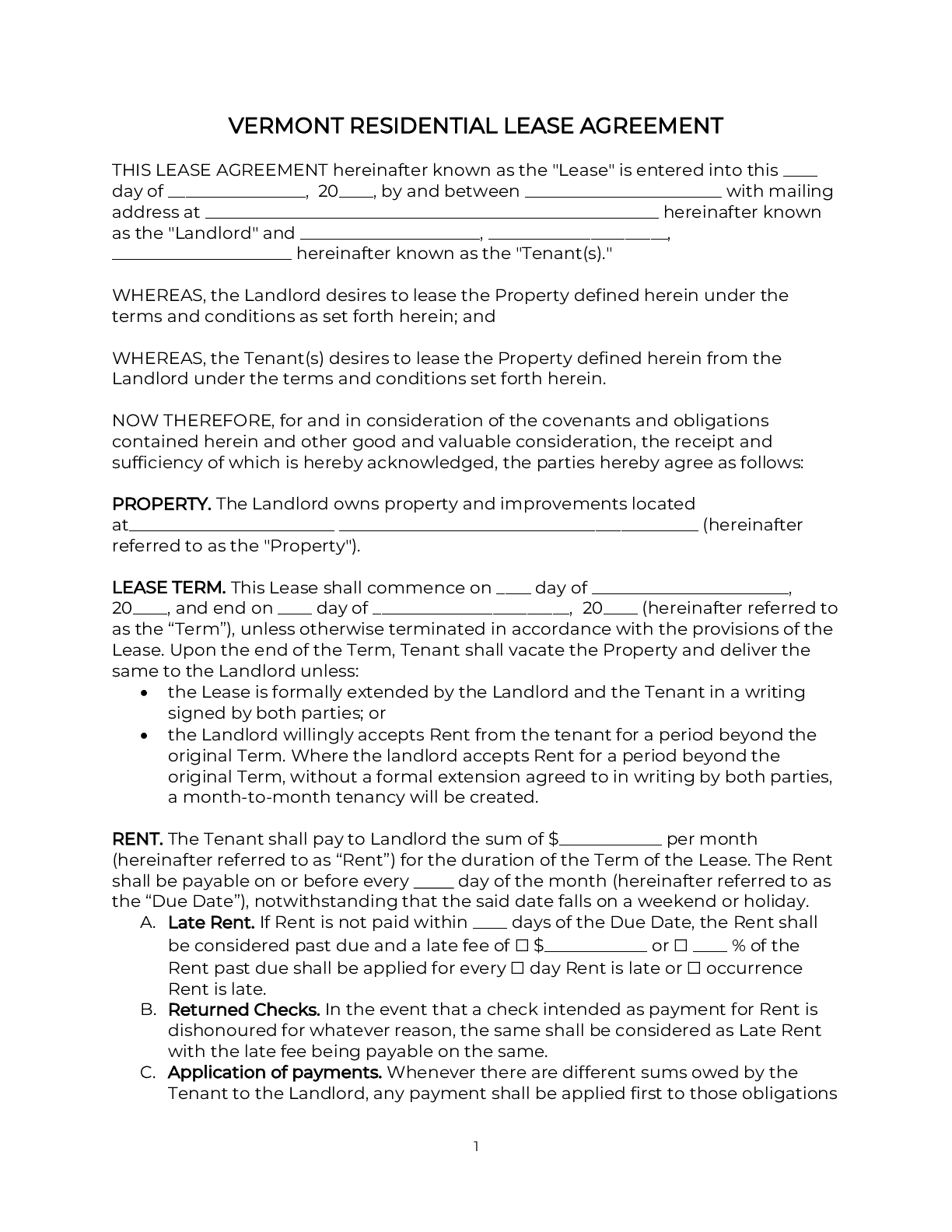
A Vermont residential lease agreement (“rental agreement”) is a legal contract for a tenant to rent a residential property from a landlord, subject to terms and conditions agreed by all parties.
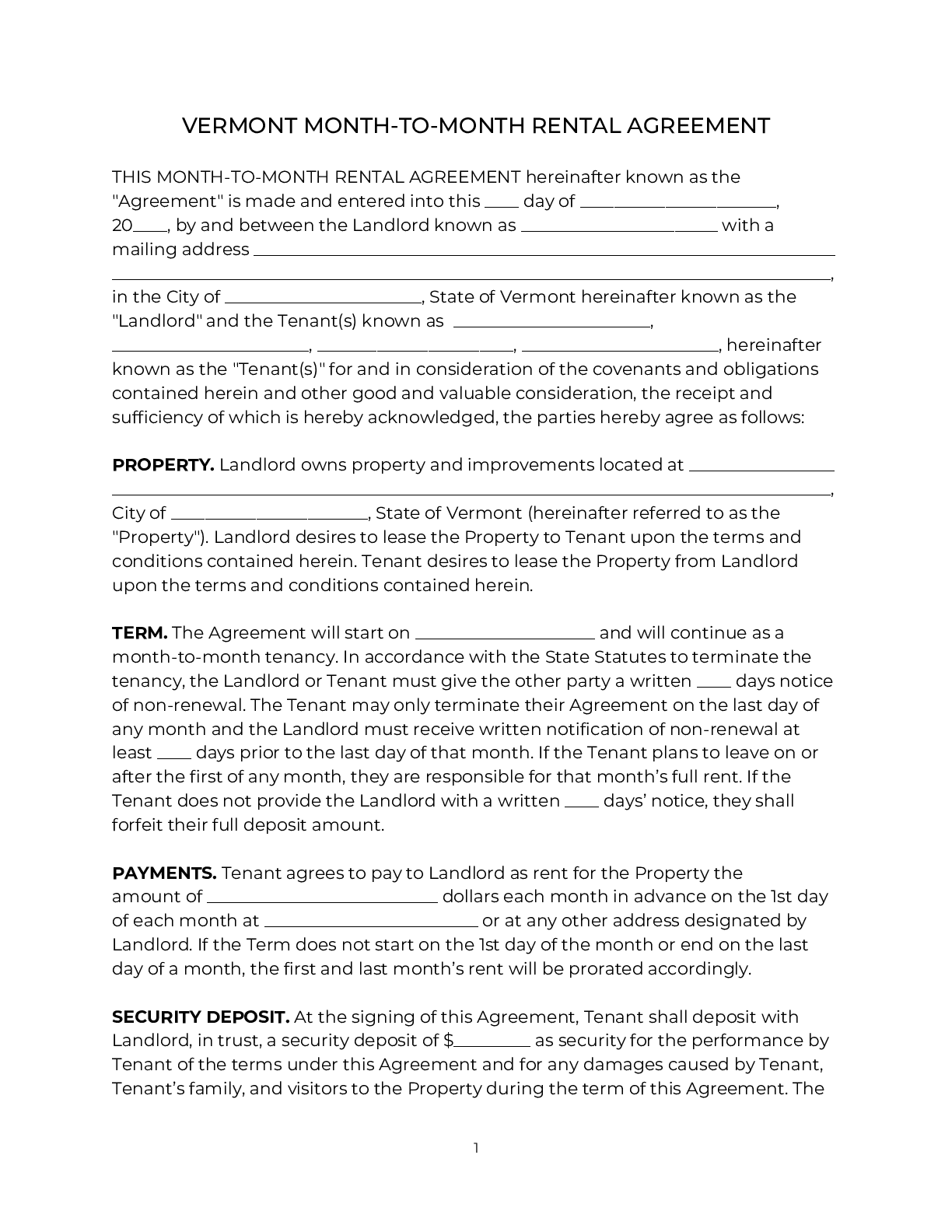
A Vermont month-to-month lease agreement is a contract (not necessarily written) where a tenant rents property from a landlord. The full rental term is one month, renewable on a month-to-month basis.
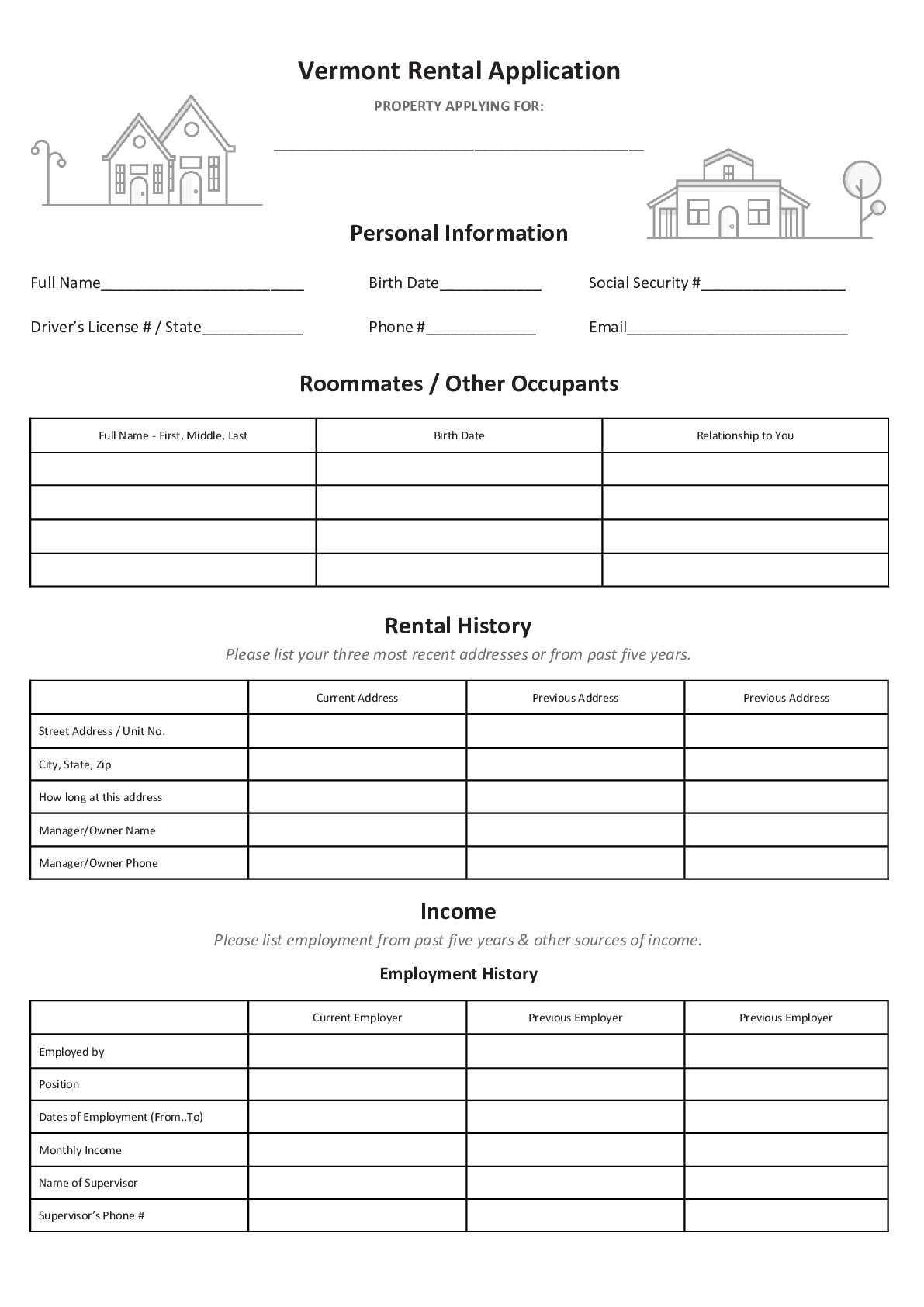
Vermont landlords may use a rental application form to screen prospective tenants. A rental application collects information relating to finances, rental history, and past evictions.
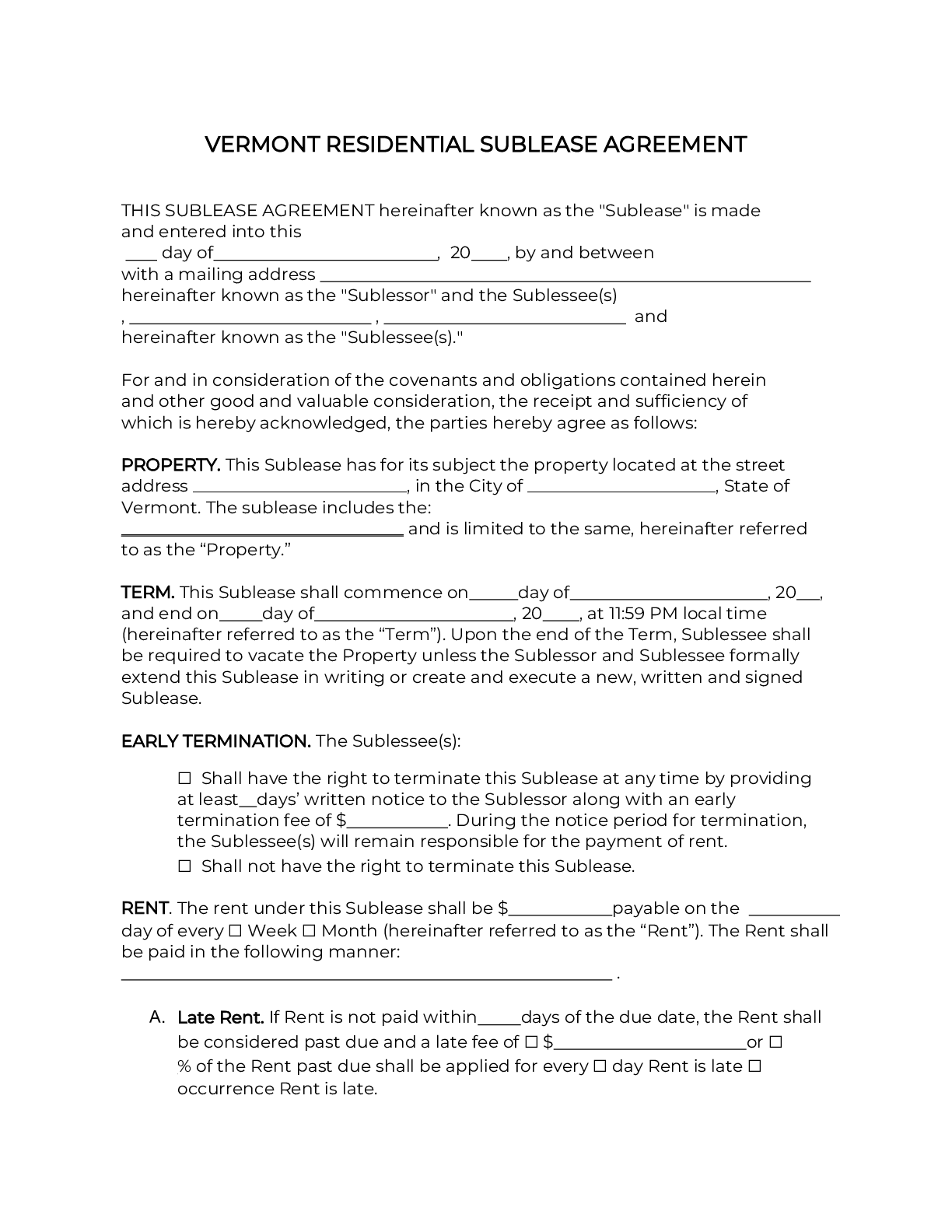
A Vermont sublease agreement is a legal contract where a tenant ("sublessor") rents (“subleases”) property to a new tenant (“sublessee”), usually with the landlord’s permission.
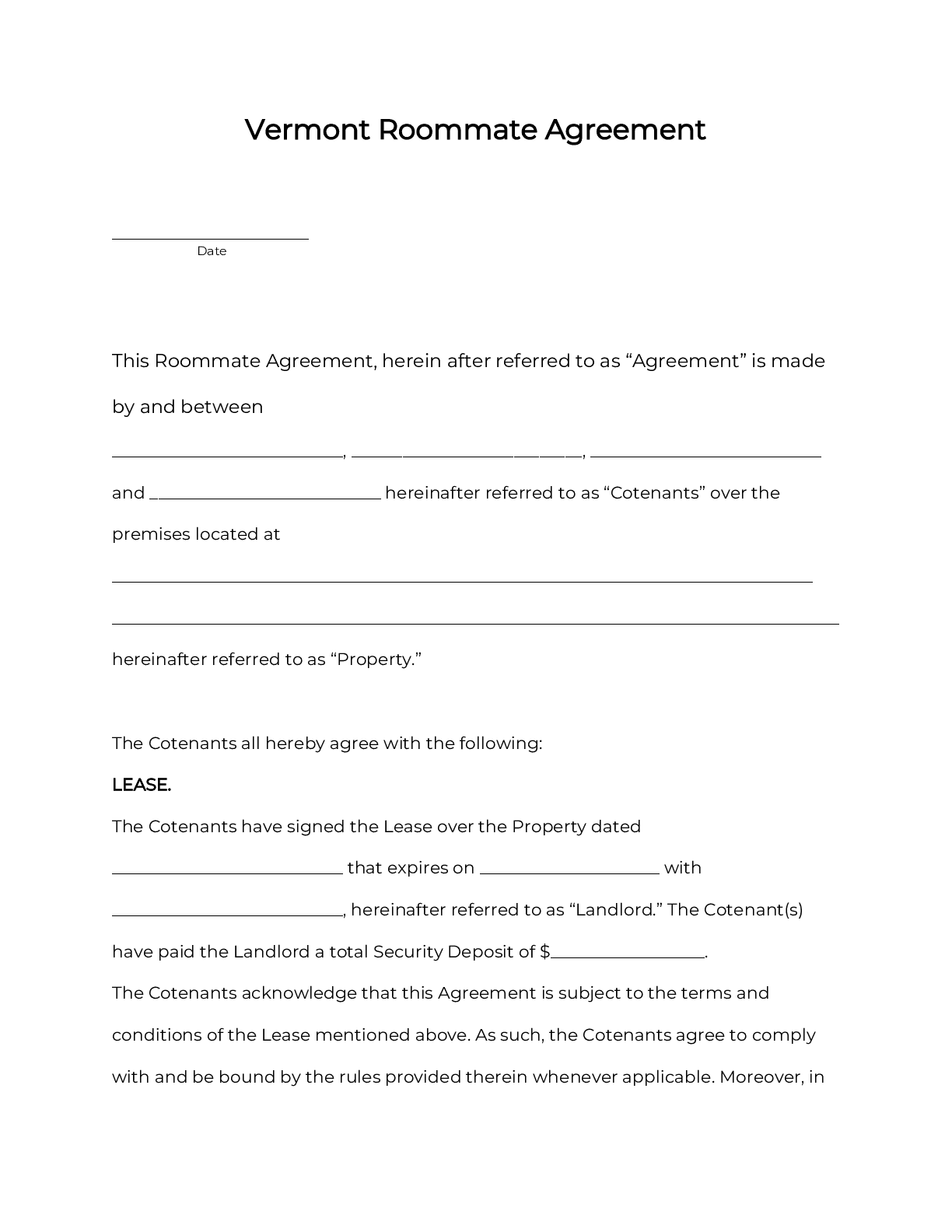
A Vermont roommate agreement is a legal contract between two or more people (“co-tenants”) who share a rental property according to rules they set, including for things like splitting the rent. This agreement binds the co-tenants living together, and doesn’t include the landlord.
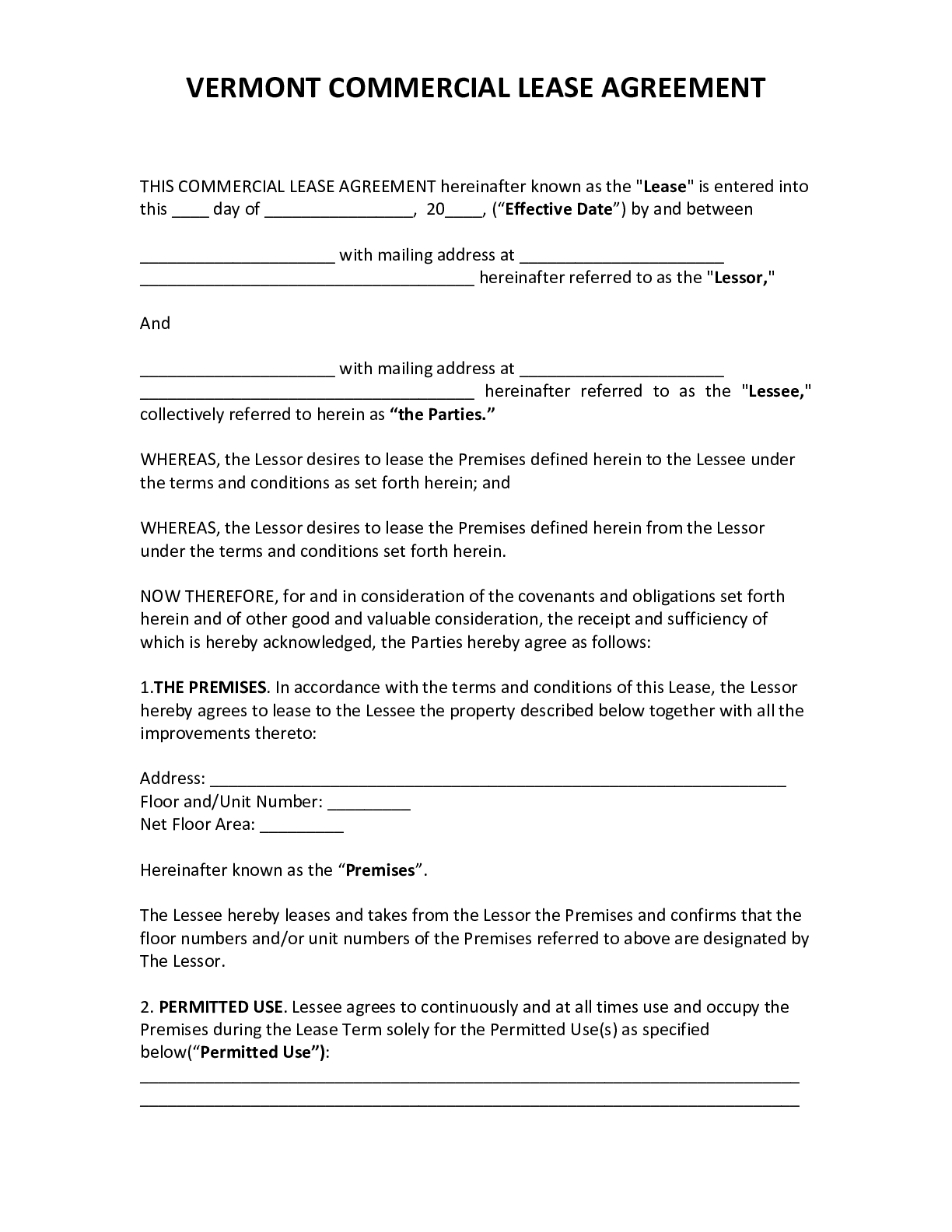
A Vermont commercial lease agreement is a legal contract arranging the rental of commercial space between a landlord and a business.
Vermont Required Residential Lease Disclosures
- Lead-Based Paint Disclosure(required for some leases) – For any property built before 1978, federal law requires that a Vermont residential lease must contain a lead-based paint disclosure with an EPA informational pamphlet, plus notice of any lead hazards on the property.
To learn more about required disclosures in Vermont, click here.
Vermont Landlord Tenant Laws
- Warranty of Habitability – Vermont landlords can only rent out habitable property that has certain health and safety features like heat, water, and plumbing. Landlords have a “reasonable” time, usually up to 30 days, to fix issues after proper notice. Failure to repair lets a tenant end the rental agreement, ask a court to order repairs or compensation, withhold rent, or (for minor issues) repair and deduct. Tenants can also recover reasonable attorney fees.
- Evictions – Vermont landlords may evict tenants for reasons including rent default, lease violations, and illegal acts. Landlords must provide tenants with different amounts of notice, depending on the type of eviction. Most evictions in Vermont take somewhere from a few weeks to a few months. However, properties covered by the federal CARES Act are entitled to a minimum 30 days of advance notice before eviction for nonpayment of rent or fees, and landlords must also file a certification of CARES compliance before such evictions. [1]
- Security Deposits – Vermont does not set a maximum cap on the amount of a security deposit. Any security deposit funds not deducted must be returned to the tenant within 14 days of lease termination.
- Lease Termination – Vermont tenants may terminate a month-to-month lease with 30 days of advance notice. A fixed-term lease can’t be terminated early without active military duty, landlord harassment, unit uninhabitability, or domestic abuse.
- Rent Increases and Fees – Vermont does not set a maximum cap on rent increase, but any increase must be preceded by at least 60 days of advance notice (or more, in certain local areas). Vermont landlords may only charge late fees equal to the actual costs incurred by late payment.
- Landlord Entry – Vermont landlords may enter rental property for inspections, maintenance, services, and emergencies. Unless it’s an emergency, they must provide at least 48 hours of advance notice, and enter only between 9:00 AM and 9:00 PM.
- Settling Legal Disputes – Vermont allows landlord-tenant disputes in small claims courts if the value in controversy is under $5,000. In fact, these courts don’t accept eviction cases. What’s more, they only accept cases valued at up to $5,000.
To learn more about landlord tenant laws in Vermont, click here.
Sources
(a) Applicability. This rule applies to all actions for eviction of a tenant of residential housing based solely or in part on nonpayment of rent.
(b) Notice of Termination of Residential Tenancy.
(1) A complaint in an action to which this rule applies must contain or be accompanied by a declaration showing either compliance with the 30-day notice requirement of the CARES Act, 15 U.S.C. § 9058(c), or that the dwelling from which the plaintiff seeks to evict the tenant is not located on or in a “covered property” as defined in the CARES Act, 15 U.S.C. § 9058(a)(2).
(2) The declaration must be in the form approved by the State Court Administrator and published on the Judiciary website.
(3) The court may dismiss a case filed without the declaration.








